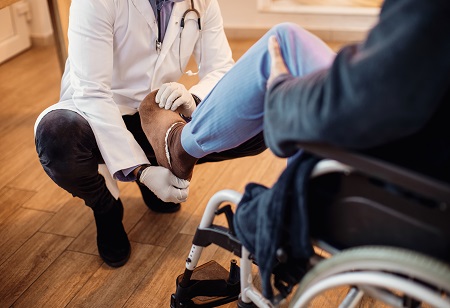India Pharma Outlook Team | Thursday, 29 February 2024

Roche Pharma India reported the launch of its blockbuster advancement drug, Ocrevus (ocrelizumab), for the treatment of multiple sclerosis (MS), growing its nervous system science portfolio to take special care of neglected needs of various patients wrestling with this weakening illness in India. Most people are determined to have different sclerosis between the ages of 20 and 40, making the illness a main source of non-horrendous handicaps in more youthful grown-ups.
It is the main monoclonal immune response drug supported for the treatment of both RRMS and PPMS with over ten years of clinical and Certifiable information that features:
More than 80% of individuals with RRMS and more than 33% of individuals with PPMS treated with Ocrevus gave no indications of incapacity movement. Beginning Ocrevus two years sooner saved about ten years of sickness movement in individuals with RRMS. Around 92% of individuals with RRMS who got Ocrevus before didn't require a mobile guide, and 80% of individuals with PPMS didn't need a wheelchair following ten years of starting and consistent treatment with Ocrevus.
Patients on Ocrevus have the most noteworthy perseverance and better adherence than treatment due to its two times yearly (when at regular intervals) dosing, which is ideal for most patients contrasted with more incessant (month to month) infusions.
Commenting on the launch, V Simpson Emmanuel, CEO and managing director, Roche Pharma India said, “The introduction of Ocrevus represents a pivotal moment in the management of multiple sclerosis in India. Boasting formidable efficacy, streamlined administration, and a commendable long-term safety record, Ocrevus instils fresh optimism in individuals grappling with this formidable neurological condition. As a blockbuster drug and Roche's flagship globally, launch of Ocrevus in India underscores our commitment to providing innovative solutions to address the burden of neurological disorders that is already one of the biggest health challenges globally and is only set to grow significantly.”